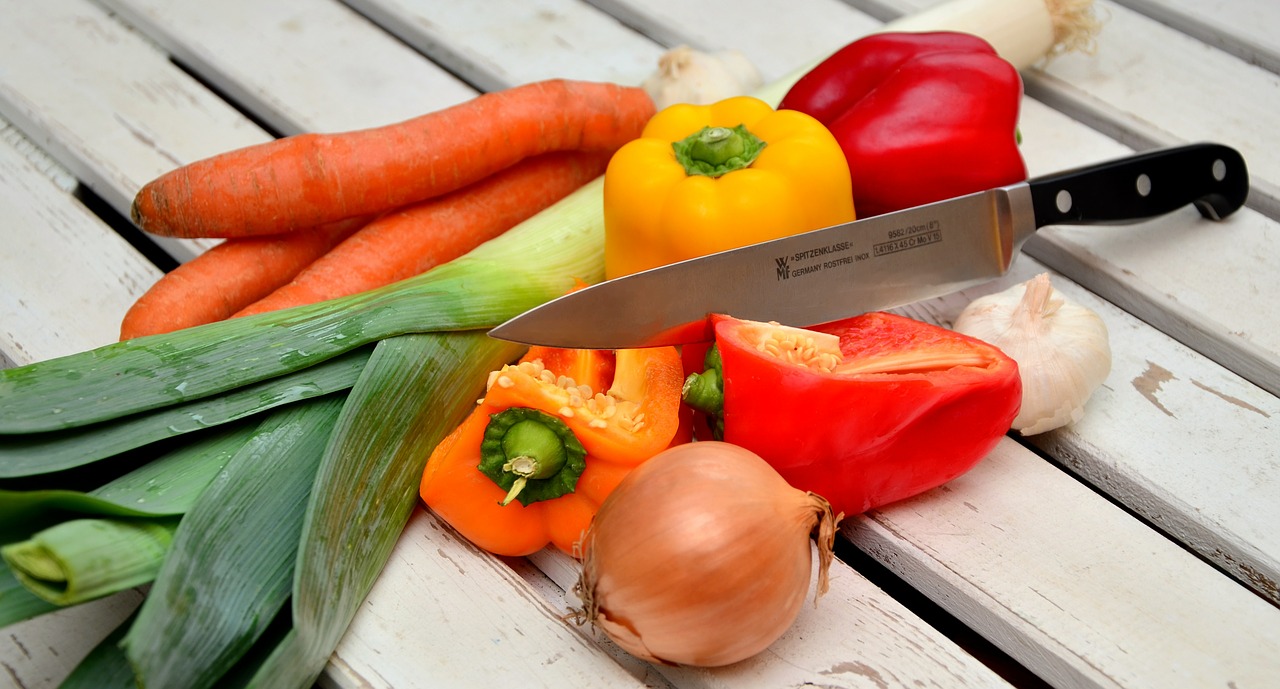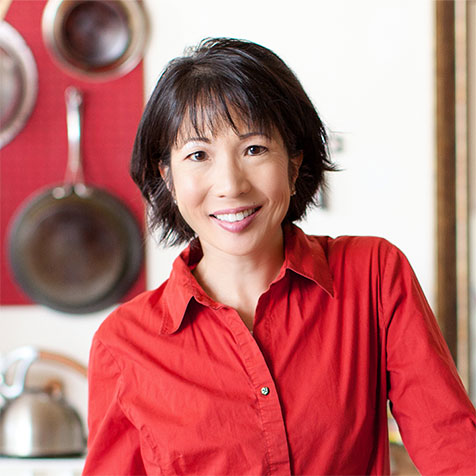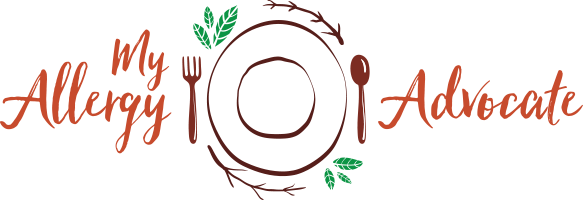Autoimmune Disease | Chronic Illness | Invisible Illness | Etiquette
Things You Should Never Say to a Person With Autoimmune Disease or Serious Food Allergies
I’m going to skip past the customary introduction to the subject of autoimmune disease etiquette faux pas and allow your imagination to run wild. For the moment, let me just say that people say the dumbest things with the kindest intentions. Yes, they sometimes do.
I was on an airplane flight, and when the attendants began handing out snacks. As is my custom, I politely returned mine with a, “I can’t have this, but thank you.” The attendant asked me if there was anything I could have from her snack cart, and I said, “I have Celiac Disease and a lot of food allergies, so if you have a gluten free snack, I could look at the ingredients to see if it’s safe for me.” She began to rummage through the options.
An older couple next to me overhead my response*, and the woman said to me, “Oh, I’m gluten free too! You should try their corn chips. They’re gluten free, you know.” I tried to explain to her that I couldn’t have those corn chips, because CORN (and the usual gastrointestinal HELL that is unleashed when I eat corn). Then her husband cut in, suggesting that I try flying to Europe sometime and eating their wheat, “Because this writer said that the wheat in Europe isn’t full of GMO’s and so we are safe to eat the gluten there.”
It took everything in me to not give them an eye-roll. Eye rolling is a sign of resentment, and yes, I have a number of things I feel resentful of in this life. Their momentary presence in my life is not one of them. But when I’m tired, I can feel my eyeballs start to move upwards, as if drawn by an irresistible force, and I have to just stop and breathe, emotionally lassoing my eyes to look straight ahead, soften my gaze, and relax my jaw from clenching.
On a good day, I can just listen and not react. On a stellar day, I can listen, not react, AND if I have the energy and the audience is listening, I can educate on the subject with a nearly unlimited amount of patience and understanding.
But on a day where I’m traveling, where there is nothing to eat, and the guy across the aisle is on his fourth beer and flinging his gluten-laden snack and sandwich crumbs in at least two meters in all directions, I want to go off on a rant. A RANT, I say!
And so, you get to read my rant about the things you should never say to a person with Autoimmune Disease and multiple serious food allergies.
The Wind-Up: That Time Before They Know Anything About You
To be fair, the couple in the example above did not know I have two Autoimmune Diseases and multiple food allergies and intolerances. They did hear I had Celiac Disease, and I don’t assume they knew that much about it. Certainly, they didn’t know what I have researched about my own disease and disease process. The wife had a sensitivity to gluten but did not have Celiac Disease.
In countless other interactions with people, I have found that the primary negative responses — the ones I want to share with you because perhaps you can either commiserate, or you can learn from them — fall in a few repeatable categories. The pain these words create runs deep, creating isolation and distancing many people with invisible illnesses. This pain is all too familiar, and cannot be treated with a pill.
One time I was talking to a healthcare practitioner about some inflammatory pain, and she suggested the use of Chinese herbs to cure my condition. I told her I was reticent to try the herbs, since many of them are still formulated in China and could be cross contaminated with my allergens, but she insisted that I try them. Against my better judgment, I did try them, and within three days I was seriously ill with diarrhea, cramping, nausea, and light vomiting. As suspected, all the herbs were formulated using corn as the binder, and that binder was not listed as an ingredient.
Although I received an apology from her, I was more bothered by the interaction we had regarding their use. Here I am, the patient, the granddaughter of Chinese medicine doctors, and the other person is supposed to be an authority on the use of herbs to heal people. We then put our trust in a person who has dedicated their career to the study of herbs and their effects on the human body in a variety of diseased states. Some days, that advice is good; other days… well, it just doesn’t work for everyone.
This advice feels ten times worse when it comes from someone who is not a skilled practitioner of health, who doesn’t know you, and yet attempts to advise you on your disease process or health options in a way that feels — well, just icky.
Ultimately, you and your knowledge of your disease and your food allergies plays a critical role in decision-making regarding food, medicines, lifestyle, activity, rest, and spirit. Your observations about yourself are invaluable. Your knowledge about your disease is crucial. Your understanding of how your body might react to things is important.
When someone comes into your life and within minutes is diagnosing, suggesting, and recommending treatments to you without knowing YOU, how do you feel? It’s this time that I call, “The Wind-Up”, when the other person is preparing a mini lecture for you that is so inappropriate, invasive, and often downright rude. Yet it is usually delivered with a kind smile.
Still, I end up feeling a bit shitty. Even if I understand that this person is just trying to be helpful, the problem is that you didn’t invite them to diagnose, project upon you, and then “cure” your incurable disease. You didn’t ask them to erase the fatigue, suffering, and pain that is so bad sometimes, you would have done anything — and perhaps you already have done everything, gone anywhere, paid anything — you possibly can to make it stop.
So while I stood dumbfounded in front of a nice woman who suggested that I try yet another well-known treatment “option” to cure Celiac Disease (ironically, another one that comes from the world of Chinese medicine) after she had met me for but ten minutes and a brief introduction, I could feel the eye-rolly thing start to bubble up again.
Let’s just say, it took a lot of self control to not inform her that she was a white woman with no background in Chinese medicine talking to a Chinese woman who has already tried many routes with no success because Chinese medicine does not offer a cure for Celiac Disease; in fact, no one offers a cure for it. [Yet.]
The only effective treatment for Celiac Disease known today is the complete avoidance of gluten, and eating a naturally gluten-free diet free of anything that keeps the gut from healing (i.e. inflammatory foods). While it is is not easy, it is effective; in fact, it is more effective than a standard gluten-free diet that still includes corn, oats and other inflammatory foods, and it is more effective than any supplements created to limit the worst of the symptoms, such as Gluten-Ease.
To summarize, I have some work on myself to do in responding to those who deliver me a “wind-up.” For you, my Hungry Minions and the people who love them, please be aware of your words. Ask more questions than you offer solutions. Behind every person with Autoimmune Disease and Chronic Illness, there is a story that runs very deep. Tread lightly.
And Finally: Five Things You Should Never Say to Someone with Autoimmune Disease and Serious Food Allergies
I’m pretty sure there are more than five things you should never say to someone with Autoimmune Disease, and I thought I’d start with five and just keep adding over time. Here, I’ll focus on what NOT to say, and just give a tip here and there for some better options.
“I know all about your disease. You’re going to be fine.” Even if you have the same diagnosis, Autoimmune Disease is a strange beast that affects each person differently. One person’s MS flare can look very different in another person, based on where it is located and on the age of onset, among other factors. My CD looks different than my friend’s CD; our recovery rates are very different as well.
You can’t possibly know more about a person’s disease state than they know themselves. And therefore, you can’t possibly be able to predict how “fine” or not fine that person is going to be in coping with their disease. Hearing someone tell me that because, “There are so many new gluten-free products on the market, you’re going to be just like a normal person!” was not comforting — it was insulting.
Similarly, I have strangers commenting to me, “Well, at least you have a few things you can eat. It’s not like you’re going to starve, and I’m sure there are a lot of people out there with food allergies who do just fine.” While I don’t expect them to understand how to navigate living for hours outside of their homes everyday without being able to rely on convenience foods or restaurants, it’s pretty frustrating to not be able to make people understand what they are asking of you when they want you to attend a function yet supply nothing by way of accommodation.
In fact, using the word accommodation, as taken from the world of disability, is the one way that does seem to help people understand what it’s like to live with serious food allergies and a medically-necessary diet.
“What did you do to cause this disease to happen?” Some people link disease to specific actions that people can avoid, and then blame them quietly or overtly for not being smart enough to have avoided those actions. It is a common response when we hear someone say, “So and so just found out he has cancer.” We may rush to think about his lifestyle: did he eat too much refined sugar, too much red meat, lead a stressful lifestyle, or smoke cigarettes?
What happens if the only “crime” committed to getting your disease was the genetics that you inherited? What if it is a tick-borne illness like Lyme Disease? Were you supposed to stay indoors your entire life to prevent it? It’s a really heavy burden to place on someone’s shoulders if you grill them over their past actions.
Instead, you could ask a different question, “What do you think may have contributed to you manifesting this disease?” Contribution is not cause. The contributive actions could hold some keys not to reversing the disease, but to managing the symptoms in the future, and it assigns no personal blame.
“You don’t look ill. You must be doing well.” If a person with Autoimmune Disease confides in you that s/he isn’t feeling well, that’s often a BIG deal. Most of us tire of being ill to the point that we learn to withhold the worst of it from all but a small handful of inner-circle friends and family we know won’t abandon us if we’re sick yet one more time.
Instead, you might observe, “You look well on the outside. How are you doing, really?” which opens the door to honest conversation. That is, if you really want to know. If you don’t want to know, it’s OK to not ask. Really, it is OK to not want to hear it. Most of us understand how overwhelming it is to deal with illness; we don’t expect you to know how to hold a disease process with us. It takes time and a lot of patience.
Have you tried X treatment? I know someone who did, and she’s cured of her disease. This is the cringe-worthy question and statement that inspired me to write this post in the first place!
As I mentioned in “The Wind-Up”, many of us have done everything, tried everything, and are at different places in our acceptance of dealing with incurable diseases. You should have been there to measure the steam rising from all my facial orifices when I received an email from a well-meaning community friend who said he had found a naturopath who could cure not only a friend’s disease but possibly mine as well.
Like a scene out of “Firestarter”, I had to channel my inner Drew Barrymore to say, “Back off! Just back off!” before I tried to burn a hole in his head via my response.
Instead, if you really want to understand this person’s Autoimmune Disease journey, ask for permission to inquire about what s/he has done to manage symptoms and cope. Ask more questions before proposing anything you simply read about from someone else’s experience or from an n=1 experience of your own. Be humble, and try not to be in a hurry to project your ‘miracle cure’. I am not saying that miracles don’t happen; I am saying, they are not commonplace. Your hope that you are trying to offer in the place of your helplessness while you witness our sufferings can feel like a crushing weight.
Because you’re a fighter, I know you’ll fight back. You’re tough. My beloved M always reminds me that physical things are different than mental things. Just because you have a sharp mind and can problem-solve like a guru does not always translate to managing the overwhelming fatigue and energy suck of Autoimmune Disease, nor does it make you an instant whiz at remembering treatments, medications and supplements, or rotating a variety of therapies.
When someone sweeps aside your battle with a simple platitude that references your mental toughness, it can still leave you feeling like you’re a failure for not overcoming your disease in flying colors. Instead, you should realize that the person with Autoimmune Disease is human. We have good days and we have bad days, even if we don’t talk about the bad days beyond our inner circles.
We have days when we are mentally strong and clear, yet our disease is still a bitch tearing us apart. These diseases are no respecter of person; they indiscriminately do their thing, leaving flares, scaring, inflammation, and cell dysfunction in their wake.
This isn’t about being tough. Instead of offering a platitude and a cheerleading cry, try offering a statement, such as, “I see how hard you’re fighting against your disease. This looks so hard and exhausting.”
Then, pause. Let us decide if we want to say more about that fight and whether or not your observation is correct. What looks to you like we’re fighting might actually be our moment of drowning, like a child quietly slipping under the surface of the water. The observation that you see us at all is more important than your observations about our level of mental or spiritual toughness, and in my book, to be seen is a high form of love.
Final Thoughts: More Ear, Less Talk
It is rarely ever an error to offer a listening ear than to advise. If you know you’re a bad listener, then say so, and try to keep yourself in check.
While I know as a practitioner and a patient that I can continue working on my own skills on how I share about the Autoimmune Disease journey, I hope this post has been helpful to you to avoid the things you shouldn’t say to us. If you have already said those things, you can always circle back and check with those people, seeing if there is any way to change the direction of your future interactions to being more supportive and less “diagnostic” or didactic in nature.
Thank you for reading my rant and for mulling over the options I’ve suggested for consideration. It means a lot to me, and I’m hoping it will mean a lot to the people you love who have Autoimmune Disease and/or food allergies. Feel free to add comments, questions, and other suggestions, and do let me know if you want your contact name included in the comment (it will be reposted anonymously under my name if you don’t, but want to share it anyways).
And as always, let’s keep making food fun again, where it applies!
*I am not big into shaming people unless they prove to me that they deserve it, so I have changed elements of this story to protect the identity of these people. I have no more “eye-rolly” towards any of them, Om Shanti, Peace, Peace!





